MBK Partners and Young Poong to Restore Korea Zinc's Shareholder Value through Governance Refor
- Proposing the new board composed of 14 experts from four key pillars and the adoption of a ‘executive director system’ ahead of an extraordinary shareholders' meeting
- Presenting a "Value-Up" proposal aimed at improving Korea Zinc's governance structure and restoring shareholder value.
SEOUL, South Korea -- (BUSINESS WIRE) --
Korea Zinc's largest shareholders, MBK Partners and Young Poong (herein, the Consortium), have announced plans (Korea Zinc Value Up) to fundamentally reform the company’s governance structure to recover the long-overlooked shareholder value.
This decision follows the persistent decline in Korea Zinc's corporate and shareholder value under the leadership of Chairman Choi Yoon-beom, with governance issues identified as the root cause.
In preparation for Korea Zinc’s extraordinary shareholders’ meeting on January 23, 2025, the Consortium has proposed the appointment of a new board comprised of 14 experts from four key sectors, along with the introduction of an executive director system.
Since assuming the role of CEO at Korea Zinc in 2019, Chairman Choi has been accused of unilaterally expanding friendly stakes, effectively dismantling a 70-year-long partnership with Young Poong, established by the company’s founding leadership. His tenure has been further criticized for engaging in illegal and unreasonable investments, allegedly privatizing management rights for personal gain.
The Consortium has deemed the current board structure, which has lost its ability to independently oversee executive actions, as obsolete and in need of replacement.
To address issues with the current board and establish an independent board that serves the best interests of all shareholders, the Consortium proposes 14 candidates, each possessing extensive experience and expertise in one or more of the following areas: capital markets, law, manufacturing business and corporate governance.
These 14 nominees will be grouped into four squads: (i) business strategy, (ii) M&A/finance/accounting, (iii) legal/risk management and (iv) ESG/governance. Each squad will create its own internal synergies, and the four squads will comprehensively enhance the value of Korea Zinc as one-team.
Business Strategy Squad
Kim, Jae-seop, former president of Doosan Machine Tool
Sohn, Ho-sang, current professor at Kyungpook National University
Chung, Chang-hwa, former director of POSCO Holdings N.EX.T Hub
M&A / Finance/ Accounting Squad
Kim, Kwang-il, current vice chairman of MBK Partners
Kwon, Gwang-seok, former president of Woori Bank
Kang, Sung-doo, current president of business management department of Young Poong
Legal / Risk Management Squad
Byeon, Hyeon-cheol, current attorney at Yulchon LLC
Kim, Myeong-jun, former commissioner of Seoul Regional Tax Office
Lee, Deuk-hong, current attorney at Law Firm Dambak
Kim, Su-jin, former vice president of Korean Bar Association
ESG / Governance Squad
Yoon, Suk-heun, former governor of Financial Supervisory Service
Cheon, Jun-beom, current vice president of the Korea Corporate Governance Forum
Kim, Yong-jin, current professor at Sogang University
Hong, Ik-tae, former head of Korea Coast Guard
The current board of directors at Korea Zinc has come under fire for approving decisions that have inflicted significant financial harm on the company, including the self-tender offer for treasury shares and a follow-up general public offering, both of which were criticized for disrupting the order of Korea's capital markets.
Given that these actions have rendered the board thoroughly malfunctioning under Chairman Choi’s influence, the Consortium has proposed introducing an executive director system to restore accountability and proper governance.
The executive director system proposed by the Consortium aims to enhance corporate governance by clearly separating the roles of the board of directors and executive officers. Under this system, the board will represent all shareholders, focusing on critical decision-making and oversight of executive officers. Meanwhile, executive officers, such as the CEO, CFO, and CTO, will be responsible for the actual execution of operations, improving efficiency. This framework is expected to address Korea Zinc's current damaged governance structure and lay the foundation for a new governance model.
In addition, the Consortium has presented shareholders with a "Value-Up Proposal for Korea Zinc Governance Reform and Shareholder Value Recovery." The proposal is structured around four key themes.
1. Korea Zinc’s Undervalued Shares
2. Primary Cause of Undervalued Shares: Poor Corporate Governance
3. Chairman Choi’s Disregard for Shareholders, Board’s Ineffective Oversight
4. The Consortium’s Blueprint for Korea Zinc
Korea Zinc’s Undervalued Shares
Korea Zinc's stock price outperformed both industry peers and benchmark indices through early 2019. However, since Chairman Choi was appointed as CEO in March 2019, stock price growth has decelerated and is significantly underperforming industry peers.
This downward trend intensified after Mr. Choi was appointed as Chairman in late 2022 and consolidated his leadership. Despite the upward momentum driven by the management dispute with Young Poong, the stock price has deteriorated at a negative CAGR of -5.8%.
Especially, Korea Zinc’s Total Shareholder Returns (“TSR”) consistently declined over the past three years. Korea Zinc’s TSR turned negative during the first year under Chairman Choi’s leadership since late 2022, underperforming all key benchmarks, including the KOSPI200 Index, MSCI Metals and Mining Index and median global peer group returns.
The Consortium has expressed grave concern that the company's core competencies could be at risk if the current situation is left unchecked and has concluded that Korea Zinc faces a bleak future unless its governance structure—incapable of monitoring Chairman Choi’s unilateral management practices—is fundamentally reformed.
Primary Cause of Undervalued Shares: Poor Corporate Governance
Korea Zinc has experienced continuous deterioration in both ROCE (Return on Capital Employed) and PBR (Price to Book Ratio) over the past three years, significantly lagging its peers.
This decline is due to inefficient capital allocation under Chairman Choi's leadership, including providing capital to an obscure private equity fund managed by his friend, investments in unrelated businesses, including entertainment and blind venture funds, and deploying significant amounts of capital into new businesses without conducting proper due diligence.
Since Mr. Choi’s appointment as CEO in March 2019, Korea Zinc made 38 investments totaling approximately KRW 1.3 trillion, predominantly comprising venture capital and private equity investments unrelated to Korea Zinc's core business or relevant new business initiatives.
Of the 38 invested companies, the majority continues to generate net losses, with unclear prospects of recovery or exit.
One glaring example of Korea Zinc's governance failures is the company’s 566.9 billion KRW investment in an unproven private equity fund, reportedly based on Chairman Choi’s personal connection with a middle school acquaintance. This underscores the dysfunction of the current governance system, which allows such unfiltered decisions.
Similarly, the acquisition of a foreign resource recycling firm called Ignio Holdings for 582 billion KRW, despite lacking clear evidence of proper due diligence, further illustrates the structural issues within Korea Zinc's decision-making process.
Additional controversies include allegations of supporting inheritance tax payments for another chaebol family through its investment in Jeongseok Enterprise, as well as suspicions of favoritism toward relatives in contracts awarded to CSD Design for interior construction services. These cases collectively highlight the board's repeated failure to fulfill its role as a proper overseer of management activities.
Chairman Choi’s Disregard for Shareholders, Board’s Ineffective Oversight
The dysfunction of Korea Zinc’s governance under Chairman Choi was most glaringly exposed in the company’s recent the self-tender offer and subsequent general public offering attempt.
The self-tender offer, funded through large-scale high-interest borrowing, ostensibly aimed to enhance shareholder value but instead depleted the company’s cash reserves and severely undermined the value of shares held by remaining shareholders.
Shortly thereafter, Chairman Choi unexpectedly announced an unprecedented 2.5 trillion KRW general public offering, claiming it was part of a plan to transform Korea Zinc into a "national company." The announcement caused significant turmoil in the stock market, leading to a sharp collapse in the value of Korea Zinc shares, to the detriment of its shareholders.
Due to the self-tender offer, the Company's cash balance plummeted by 90% from KRW 2.0 trillion to KRW 175 billion after KRW 1.8 trillion was consumed. Since the offer price was higher than the market price, the self-tender offer eroded non-participating shareholder value, causing a 10.2% drop in BPS and 3.6% decline in EPS, while a 29.1%p rise in debt-to-equity ratio further deteriorated shareholder value.
The rating agency Korea Ratings recently placed Korea Zinc’s credit rating on “Negative Review.” The Consortium has filed a derivative suit against the board directors who agreed to the blatantly value-destroying self-tender offer.
The general public offering that was launched to defend Chairman Choi’s control not only diluted and destroyed existing shareholder value, but it also potentially violated Korea’s Capital Markets Act if Chairman Choi was contemplating it during the self-tender offer period. In addition, the purported rationale for the capital raise, i.e., to pay down debt, stands in direct contradiction to the debt-financed self-tender offer, proving that these actions were primarily aimed at defending Chairman Choi’s control rather than addressing genuine financial needs.
The fact that Korea Zinc’s current board approved such a problematic general public offering is proof that the board is unable to provide oversight of management and that the current management and board of directors put defending Chairman Choi’s control over corporate and shareholder value.
The Consortium’s Blueprint for Korea Zinc
The consortium is committed to overhauling Korea Zinc's corporate governance by adopting advanced governance practices. This blueprint seeks to establish a more transparent, accountable, and efficient management structure, aligning with global standards to safeguard shareholder value and drive sustainable growth.
The Consortium will actively introduce the executive director system at Korea Zinc and improve the independence of the board and enhance accountability of the executive directors.
MBK Partners and Young Poong intend to strategically implement the following measures designed to restore shareholder value through enhanced corporate governance, improved shareholder returns and increased stakeholder engagement. The proposed measures will be subject to deliberation by the reorganized board of directors consisting of additional directors to be appointed at the forthcoming extraordinary general meeting and thereafter be implemented as promptly as practicable.
- Measures to Restore Shareholder Value - Stock Split, Cancellation of All Treasury Shares, Regular Disclosure of Dividend Policy
- Measures for Shareholder Participation - Recommendation of Separately Elected Outside Director Candidates by Minority Shareholders, Outside Director to Serve the Role of Protecting Shareholder Rights
- Measures for Governance Improvement - Enhance the Authority of the Related Party Transaction Committee, Newly Establish the Investment Review Committee, Newly Establish the ESG & Gender Equality Committee
The Consortium continues to Invest to maintain and enhance competitiveness as the Global No.1 smelter, but, will prevent unnecessary capital leakage and ensure sufficient investment is made in retaining and further developing its core smelting technology.
The Consortium will continue to collaborate with key domestic/international partners to improve Korea Zinc’s competitiveness in raw material sourcing and product sales, restore ties with Young Poong that have deteriorated amid the management dispute to enhance Korea’s competitiveness in smelting and other related industries.
The Consortium agrees that new business development is key to creating value at Korea Zinc. However, the Consortium believes that the timing of investment and implementation plan for each business must be revisited.
The current management plans to invest KRW 12 trillion simultaneously across all new business areas without fully considering Korea Zinc’s current capabilities, current market trends and funding capacity. By comprehensively examining Korea Zinc’s competitive edge and market environment of each business, the Consortium will prioritize the initiatives to maximize the efficiency of resources deployed.
Lastly, but, not least, the Consortium commits to continuously seek innovation and new growth drivers, while pursuing sustainable management by improving the environment, enhancing safety and guaranteeing job security.
- Sportradar Launches FanID Connecting Rightsholders and Brands with Sports Fans in a Post-Cookie Worl
- 世贸通美国欧洲投资移民:贺世贸通移民北京公司盛大乔迁
- 热烈庆祝“活力陆家嘴· 璀璨金融城” 工会企业职工乒乓球友谊赛精彩开场!
- 万元现金大奖等你拿!琴澳新城摄影大赛火热报名!内附投稿链接
- 生态农业引领绿色发展 ———走进大化玲欣家庭农场
- 五丰黎红针对主厨展开精准裂变营销,提升品牌粘性,长期助力调味品动销。
- 啄木鸟家庭维修:科技织网,重塑家庭维修生态的深度探索
- 心系家的温暖,情系惠民之举!816全民顾家日浓情献礼
- 产金聚力,质创未来 2024昌平医药健康金融投资创新论坛圆满举办!
- 西部数据丰富旗下WD Blue系列,推出针对内容创作者的全新 NVMe SSD
- 老中医薛应中:抽血与剖腹产一关于妇产科的中医探讨
- Dowlais Group Plc任命GKN Powder Metallurgy的新任首席执行官
- Uptime推出增强版M&O批准章,加快提高数据中心的运营弹性
- 汕饮糖水总部在哪里?全国范围内可开的无人自助糖水铺!
- iSAM Securities宣布亚太地区领导层变动:Barry Flanigan晋升为亚太区主管,Quentin Miller被任命为亚太区机构销售主管
- 东莞市本康实业有限公司——专业助眠眼罩与穿戴理疗产品,全方位守护您的健康
- 扎耶德可持续发展奖(Zayed Sustainability Prize)公布2025年引领全球创新解决方案者最终提名名单
- 《对话品牌》——为众人抱薪 守护健康未来
- 优购好物甄选:打造品质生活的购物新体验
- 中法建交六十载,时尚之美共绽放 —— 中法可持续时尚交融展启幕巴黎
- 政学企精英齐聚南京城,共话数字化转型新模式——县域经济数字化转型研讨会暨数字经济GBC 生态系统管理平台江苏(南京)推介会成功举办
- 打造康养服务体系,乾翔健康为乐龄人群绘就幸福晚年
- 数万网友围观,安保医疗CMEF引爆全场!
- 紫色起重吊装带/柔性吊带/圆形吊装带/彩色吊装带吊具1吨
- Dowlais Group Plc任命GKN Powder Metallurgy的新任首席执行官
- 汉江国投携手浪潮海岳,激活投资管理数字化新效能
- 创维光伏:聚焦清洁能源,全力打造“光储充云”综合服务新模式
- Anaqua Annual User Experience Conference to Feature Keynotes from Microsoft, SAP, USPTO, and More
- 兴趣引领,科技助力:iEnglish视听7.0为英语学习注入新活力
- 不忘初心 用心服务
推荐
-
 大家一起关注新疆乌什7.1级地震救援见闻
看到热气腾腾的抓饭马上就要出锅、村里大家
资讯
大家一起关注新疆乌什7.1级地震救援见闻
看到热气腾腾的抓饭马上就要出锅、村里大家
资讯
-
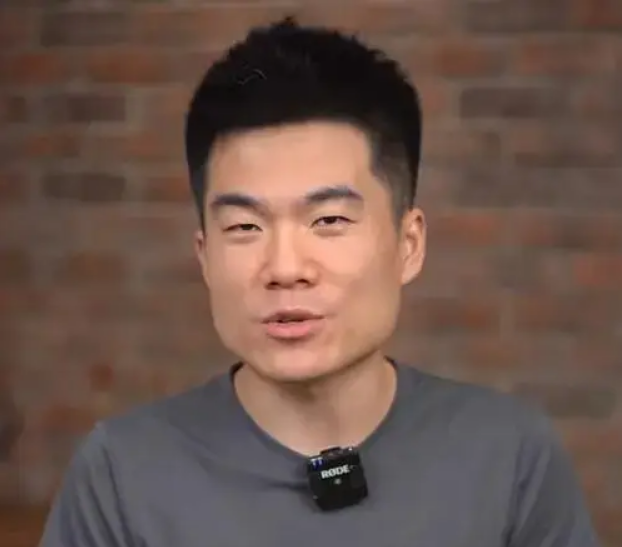 看新东方创始人俞敏洪如何回应董宇辉新号分流的?
(来源:中国证券报)
东方甄选净利润大幅下滑
资讯
看新东方创始人俞敏洪如何回应董宇辉新号分流的?
(来源:中国证券报)
东方甄选净利润大幅下滑
资讯
-
 周星驰新片《少林女足》在台湾省举办海选,吸引了不少素人和足球爱好者前来参加
周星驰新片《少林女足》在台湾省举办海选,吸
资讯
周星驰新片《少林女足》在台湾省举办海选,吸引了不少素人和足球爱好者前来参加
周星驰新片《少林女足》在台湾省举办海选,吸
资讯
-
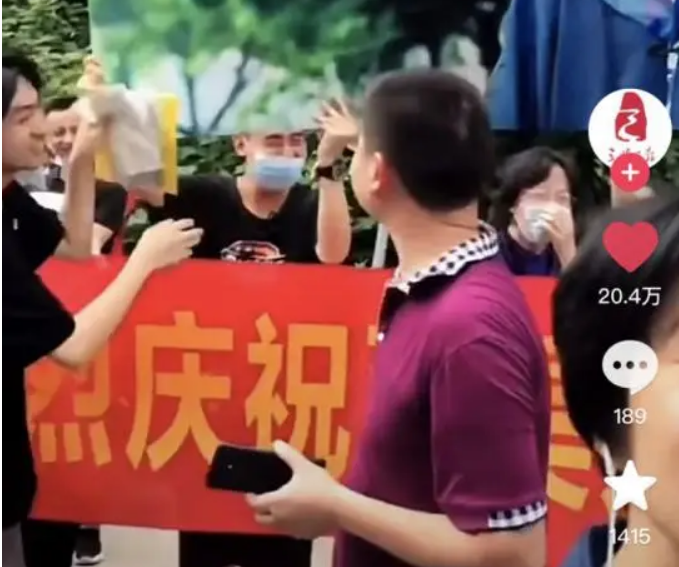 一个“江浙沪人家的孩子已经不卷学习了”的新闻引发议论纷纷
星标★
来源:桌子的生活观(ID:zzdshg)
没
资讯
一个“江浙沪人家的孩子已经不卷学习了”的新闻引发议论纷纷
星标★
来源:桌子的生活观(ID:zzdshg)
没
资讯
-
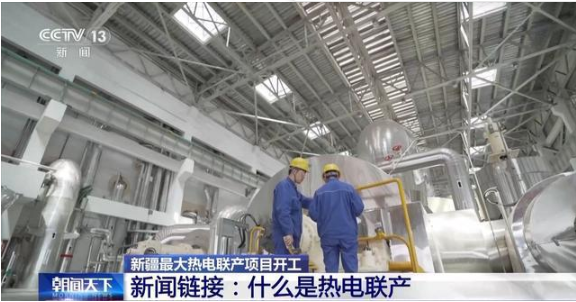 新增供热能力3200万平方米 新疆最大热电联产项目开工
昨天(26日),新疆最大的热电联产项目—&md
资讯
新增供热能力3200万平方米 新疆最大热电联产项目开工
昨天(26日),新疆最大的热电联产项目—&md
资讯
-
 中国减排方案比西方更有优势
如今,人为造成的全球变暖是每个人都关注的问
资讯
中国减排方案比西方更有优势
如今,人为造成的全球变暖是每个人都关注的问
资讯
-
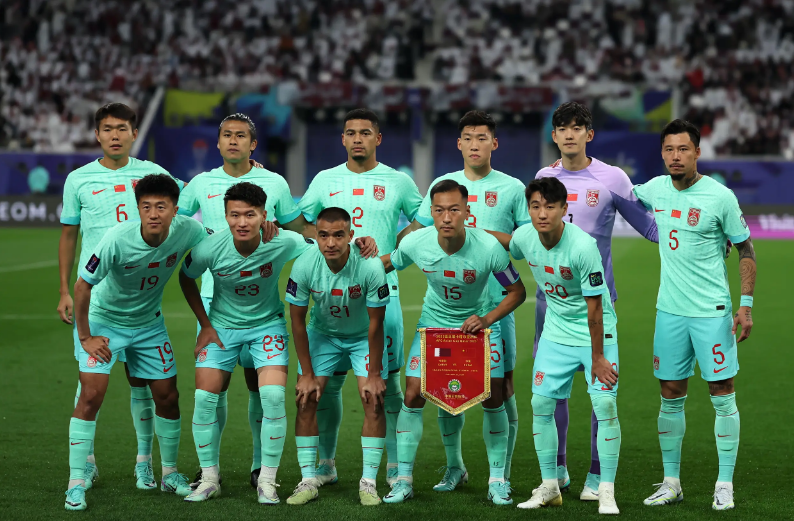 国足13次出战亚洲杯首次小组赛0进球
北京时间1月23日消息,2023亚洲杯小组
资讯
国足13次出战亚洲杯首次小组赛0进球
北京时间1月23日消息,2023亚洲杯小组
资讯
-
 奥运冠军刘翔更新社交账号晒出近照 时隔473天更新动态!
2月20日凌晨2点,奥运冠军刘翔更新社交账号晒
资讯
奥运冠军刘翔更新社交账号晒出近照 时隔473天更新动态!
2月20日凌晨2点,奥运冠军刘翔更新社交账号晒
资讯
-
 产业数字化 为何需要一朵实体云?
改革开放前,国内供应链主要依靠指标拉动,其逻
资讯
产业数字化 为何需要一朵实体云?
改革开放前,国内供应链主要依靠指标拉动,其逻
资讯
-
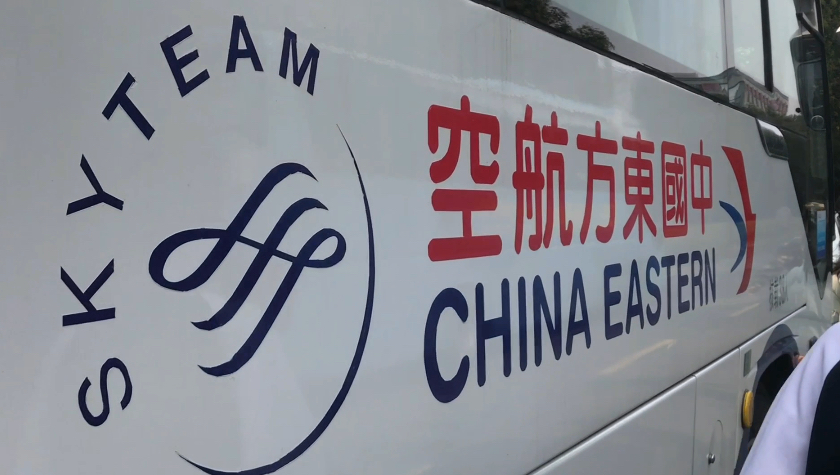 男子“机闹”后航班取消,同机旅客准备集体起诉
1月4日,一男子大闹飞机致航班取消的新闻登上
资讯
男子“机闹”后航班取消,同机旅客准备集体起诉
1月4日,一男子大闹飞机致航班取消的新闻登上
资讯

